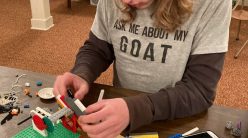Most people are very familiar with dyslexia, which is a learning disability that makes it harder for people to read, write, and spell due to difficulties in processing language. Too many teachers and parents are unaware of the prevalence of dyscalculia, though, another common learning disability that concerns math and numbers.
Dyscalculia makes it more difficult for people to understand and perform math-related tasks. It affects a person’s ability to process numbers and mathematical concepts, similar to how dyslexia affects reading.
Dyslexia affects about 10% of the population, while dyscalculia affects somewhere between 5% to 10%. That said, it is rarely diagnosed and this leads to kids suffering throughout school and feeling as if they’re “just stupid” in math areas and avoiding math at all costs.
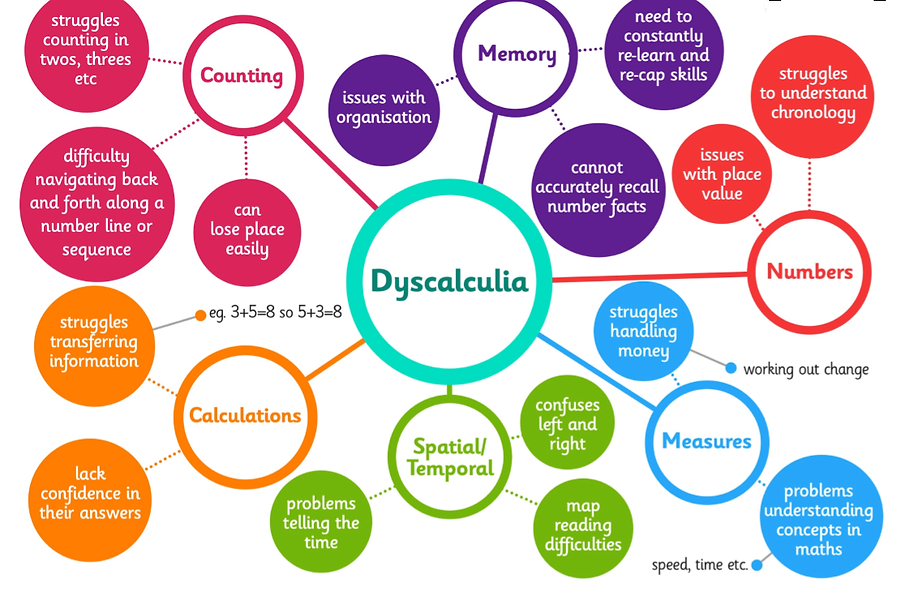
If your child has a lot of difficulty with math concepts, here are some dyscalculia symptoms to watch for:
- Has trouble learning to count in preschool and skips over numbers long after kids the same age can remember numbers in the right order
- Has difficulty counting backwards
- Struggles with skip counting
- Needs to use fingers to add past when other kids do
- Has trouble reading analog clocks
- Struggles to remember left and right
- Has a hard time figuring out costs and using money
- Struggles to read charts, graphs and maps
- Struggles to understand word problems and translate them into calculations
- Doesn’t recognize commutative properties (such as 6+4 is the same as 4+6)
- Has difficulty with activities related to speed and distance
- Has poor estimation skills
- Tends to forget learned math concepts overnight
- Has a hard time doing mental arithmetic
- Misunderstands and doesn’t retail math language
- Has severe math anxiety
These are just some of the most common signs of dyscalculia in kids. You can download a longer checklist at the Dyscalculia Network.
So how do you help your child succeed in math if they have dyscalculia? There are a lot of great ways to help make it all easier for them.
Make it as stress-free as possible
Make your math environment comfortable and fun. Do things to make it more enjoyable like having snacks. Don’t pressure them or use timers. Kids with dyscalculia tend to already believe they are bad at math and to get anxious as soon as math is involved in anything, so work hard at undoing this by making it relaxed and as fun as possible.
Make it hands on
Many kids with dyscalculia learn much better if they can use their senses while doing math. Some curricula like Math-U-See use multisensory approaches. TouchMath, Ronit Bird, Reflex Math, and Dynamomaths are some others.
You don’t have to use any curricula at all to help your child master even complicated math concepts though. If you unschool, fill your home with lots of fun, hands-on math manipulatives like abacuses, Cuisenaire rods, play money, kitchen scales, measuring tapes, tanagrams, dice, dominoes and math games.
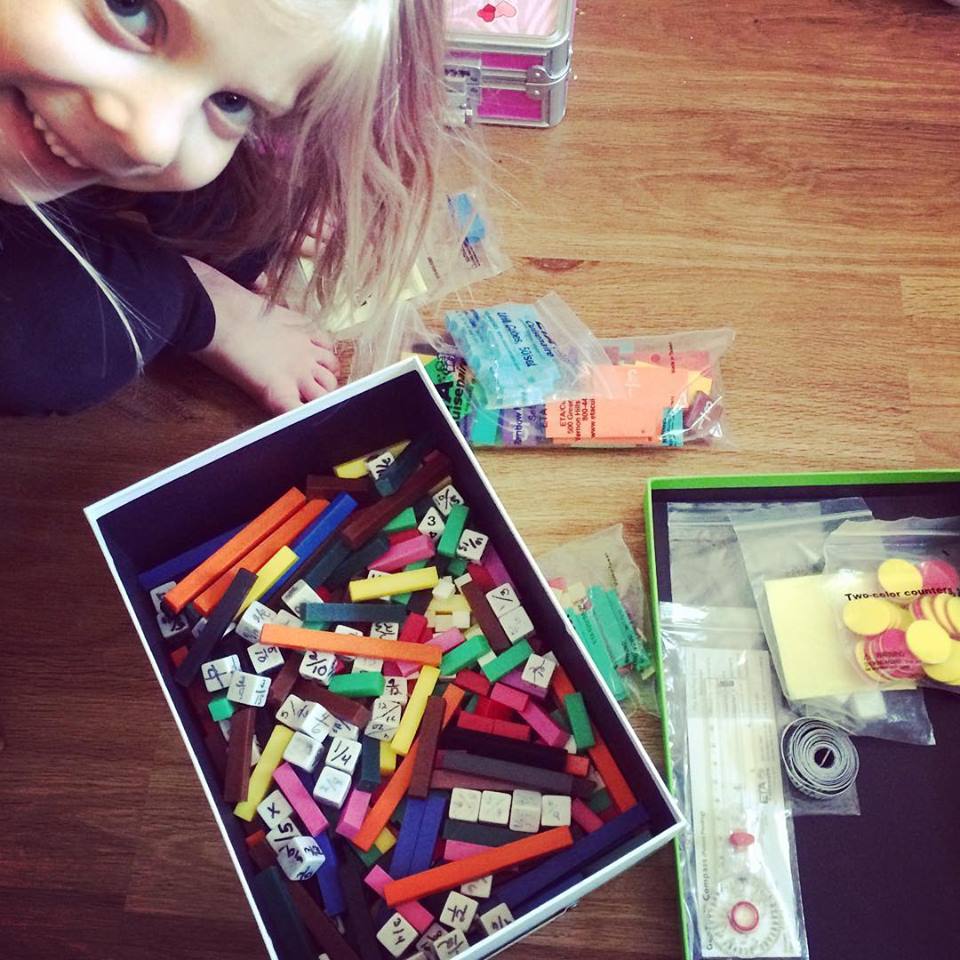
Have fun with math
Make math and numbers fun to play with by doing things like putting out a bin of dried beans and plastic measuring cups of different sizes to scoop and fill to visually see how fractions and measurements work. Play games that involve numbers, adding and multiplying like darts. Play store with fake money. Put a rain gauge outside to check each day and record the rainfall throughout the month. Line up M&Ms in rows to see which colors are the most common.
You can also find fun ways to make math physical for kids who like to keep moving, by doing things like math obstacle courses and driveway math.
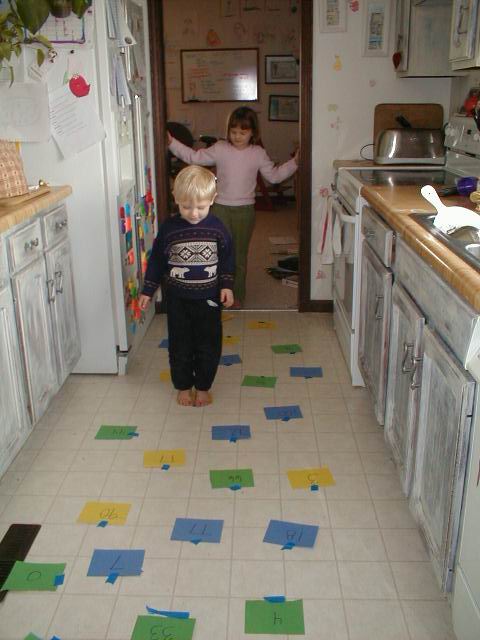
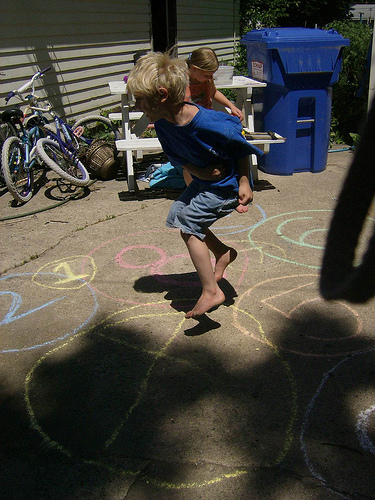
The more kids play with numbers and measurements, the less stressed they become and the more they begin to grasp math concepts naturally.
Give them all the time they need
One of the joys of homeschooling is there’s no rush. Grade levels are an arbitrary system created to juggle 30 kids at a time and keep them all on schedule. Don’t stress about learning concepts on a certain schedule. If you rush through concepts in order to keep up, you risk kids not understanding or retaining anything they’ve learned and making it that much harder on them.
Also, don’t rush them when they’re doing math work. Don’t use timers or hurry them through their work. In schools, kids with a diagnosis of dyscalculia are given extra time to accommodate their needs.
Do lots of refreshers
Kids with dyscalculia tend to forget concepts even after they’ve mastered them. Circle back to concepts every so often to help them retain them.
Let them use whatever they need
A lot of homeschool parents get caught up in making kids do all their math mentally. There’s no reason not to give your child all kinds of tools to make it easier when they’re learning other math concepts.
For instance, let them use calculators, multiplication grids and printouts of math formulas to figure out answers to math problems.
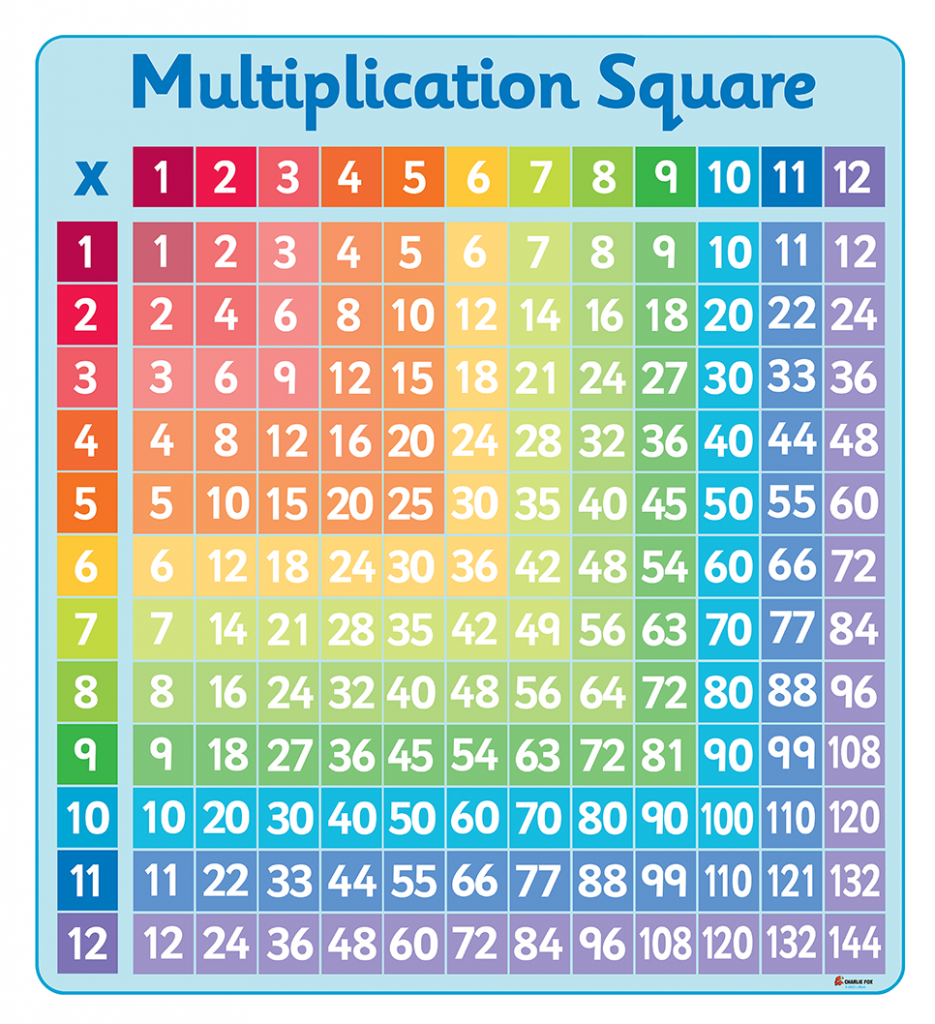
If your child is struggling to memorize multiplication tables and you’re trying to teach about areas, for example, they will also struggle with those if you don’t let them use a calculator or multiplication grid to figure out the answer.
There’s no harm in not having math facts memorized to do other types of math, but waiting until those are mastered and insisting on doing it all mentally will mean they feel frustrated about yet another math concept that they might have sailed through otherwise.
Use lots of fun math games
Fill your homeschool with fun math card games and board games. There are also all kinds of inexpensive apps that make math fun like Prodigy, which gamifies math exercises in a fantasy game. DragonBox is another great, inexpensive math app that’s really fun.
We do lots of fun homemade games here like Roll an Array (click here to print ours out).

There are also all kinds of fun online math games that are free at Sheppard Software, and they’ve turned a lot of them into apps as well.

Relax
It’s easy to worry as a homeschooling parent. Am I failing my child because they’re not at the same level as other kids their age? How will my child master high school math? How will my child get into college?
Keep the big pictures in mind, instead. Is your biggest priority as a homeschool parent that your child be really good at trigonometry someday? Probably not. All kids learn skills at different times, and all kids are better at some things and struggle with others. That’s part of being a human.
Your child can master higher math later, and can use the same strategies to make it easier then. They may not go into a field that requires a lot of math (and most fields don’t). If they are college bound, then down the road you can look into getting an official dyscalculia diagnosis so they’ll be allowed accommodations like untimed tests at university.
Many successful, happy adults still use calculators and wear a digital watch and they survive adulthood just fine!
The number one way we can help kids with dyscalculia is by removing the stress of math. There are all kinds of tools we can use to help them along the way, patience and faith being some of the biggest.
And you can remind them of this quote by someone who also struggled in math in school:





